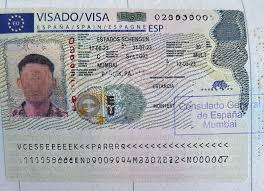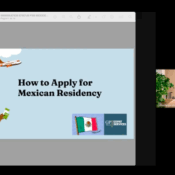
A Guide to Obtaining a Visa and Residency in Spain
Spain is a popular destination for expats, retirees, and digital nomads due to its warm climate, rich culture, and high quality of life. Whether you’re planning to visit, work, or settle permanently, understanding the visa and residency process is essential. This guide provides a comprehensive overview of the available visa options and how to obtain legal residency in Spain.
Types of Visas for Spain
1. Short-Term Schengen Visa (Tourist Visa)
- Purpose: Tourism, family visits, or business trips (stays of up to 90 days within a 180-day period).
- Who Needs It? Citizens of non-EU/EEA countries that do not have a visa-free agreement with Spain.
- Requirements:
- Valid passport (at least three months beyond your planned departure date).
- Completed visa application form.
- Proof of travel insurance covering at least €30,000 in medical expenses.
- Proof of accommodation (hotel reservation or invitation letter).
- Proof of sufficient financial means (€100 per day per person).
- Return ticket or travel itinerary.
2. Non-Lucrative Visa (Retirees & Passive Income Holders)
- Purpose: Allows non-EU citizens to live in Spain without working (ideal for retirees and financially independent individuals).
- Requirements:
- Proof of sufficient income (minimum €2,400 per month, plus €600 per additional family member).
- Private health insurance from a Spanish provider.
- Proof of accommodation in Spain.
- Clean criminal record certificate.
3. Work Visa
- Purpose: Required for non-EU citizens seeking employment in Spain.
- Requirements:
- A job offer from a Spanish employer.
- Work contract approved by the Spanish Ministry of Labour.
- Employer must demonstrate that no suitable EU citizen is available for the role.
- Proof of relevant qualifications or work experience.
- Medical certificate and clean criminal record.
4. Entrepreneur Visa (Start-up Visa)
- Purpose: For foreigners looking to start a business in Spain.
- Requirements:
- A detailed business plan approved by the Spanish government.
- Proof of sufficient financial resources.
- Business must be considered innovative and beneficial to Spain’s economy.
5. Golden Visa (Investor Visa)
- Purpose: A residency-by-investment program for individuals who invest in Spain.
- Investment Options:
- Purchase real estate worth at least €500,000.
- Invest €1 million in Spanish companies or bank deposits.
- Invest €2 million in Spanish government bonds.
- Benefits:
- Residency for the investor and their family.
- No minimum stay requirement.
- Eligibility for permanent residency and citizenship after five and ten years, respectively.
6. Student Visa
- Purpose: For non-EU citizens studying in Spain for more than 90 days.
- Requirements:
- Proof of enrollment in a recognized Spanish educational institution.
- Proof of sufficient funds for living expenses.
- Private health insurance.
7. Digital Nomad Visa (New 2023 Program)
- Purpose: For remote workers and freelancers working for non-Spanish companies.
- Requirements:
- Proof of employment with a foreign company or own business.
- Minimum income requirement of approximately €2,160 per month.
- Private health insurance.
- Clean criminal record certificate.
Residency Options in Spain
Temporary Residency (1-5 Years)
- Granted through non-lucrative visas, work visas, or family reunification.
- Must stay in Spain for at least six months per year.
Permanent Residency (After 5 Years)
- Available after legally residing in Spain for five consecutive years.
- Allows holders to live and work in Spain without restrictions.
Spanish Citizenship (After 10 Years)
- Requires ten years of legal residence (exceptions for Latin American, Sephardic Jewish, Andorran, and Filipino nationals, who may apply after two years).
- Must pass Spanish language and culture tests.
Frequently Asked Questions (FAQs)
1. Can I work in Spain on a tourist visa?
No, a tourist visa does not permit employment. You must apply for a work visa.
2. How long does it take to process a visa application?
Processing times vary but generally take 1-3 months. Golden Visas and Digital Nomad Visas may have quicker approvals.
3. Can I start the visa process from my home country?
Yes, most visa applications must be submitted at a Spanish consulate in your home country before entering Spain.
4. Does Spain allow dual citizenship?
Spain does not typically allow dual citizenship except for nationals from Latin American countries, Andorra, Portugal, the Philippines, and Sephardic Jews.
5. How much money do I need to qualify for a non-lucrative visa?
At least €2,400 per month, plus €600 per dependent.
6. Can I apply for permanent residency after five years?
Yes, as long as you have lived in Spain continuously for five years.
7. What is the best visa for retirees?
The non-lucrative visa is the best option for retirees who can prove sufficient income and do not intend to work.
Conclusion
Spain offers a variety of visa and residency options to accommodate different needs, from retirees and investors to workers and students. Whether you are looking for temporary residence or a pathway to citizenship, understanding the visa requirements will help you navigate the process smoothly.
Our Directory
Use our database to find visa facilitators, real estate agents, and recommended professionals. You will also have the ability to book a time to meet with our expats on the ground. These are individuals just like you who have gone through the immigration process and have been living in your desired country or city.
Recent Posts
Comprehensive Step-by-Step Guide to Obtaining Your Visa In Mexico
Buying Your First Business in France
All Categories
- Argentina
- Australia
- Austria
- Bahamas
- Bali
- Belize
- Brazil
- Chile
- Colombia
- Costa Rica
- Czech Republic
- Denmark
- Dominican Republic
- Ecuador
- El Salvador
- Fiji
- France
- Germany
- Greece
- Hungary
- India
- Ireland
- Jamaica
- Japan
- Malaysia
- Mexico
- Netherlands
- New Zealand
- Norway
- Panama
- Peru
- Philippines
- Portugal
- Singapore
- South Korea
- Spain
- Sweden
- Switzerland
- Thailand
- UAE
- Uncategorized
- United Kingdom
- Uruguay
- Vietnam



